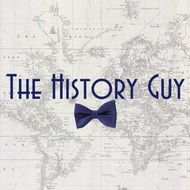
Join The History Guy from YouTube in conversation about his videos and various topics in history. Here you can find behind-the-scenes peeks of the set and The History Cats. Share ideas for future videos or ask questions of both the community and The History Guy himself. Early releases and the occasional extras are available for supporting members.
It was September 20, 1911 and RMS Olympic, the largest ocean liner in the world, was on its fifth voyage between the ports of Southampton and New York when she was struck in the side by the Royal Navy protected cruiser HMS Hawke. Surprisingly, not only did neither ship sink, but there was no loss of life. Still, the accident had surprising ramifications that deserve to be remembered.
An Olympic medal event only since 1998 you might think that curling is a relatively new sport apparently invented in Canada. And, of course, neither is true. The sport dates back at least to the 16th century, and comes from perhaps a surprising place.
During the later half of the nineteenth century numerous attempts were made to assassinate Tsar Alexander II of Russia. Killing the Tsar, however, turned out to be no easy task.
The St Louis World’s Fair, officially known as the Louisiana Purchase Expedition, was an enormous event, with more than 60 countries and 43 states maintaining exhibition spaces for nearly twenty million visitors. In addition to the many exhibitions, a variety of private enterprises set up camp near the fair in the hopes of making money off the guaranteed audience. Some of those ideas worked better than others, but few among them went as ridiculously badly as the attempt to put on a Spanish-Style bullfight.












